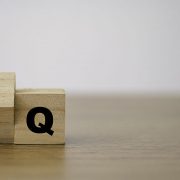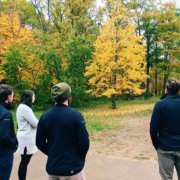How To Cultivate Lifelong Learning
Do we really value lifelong learning?
The value of lifelong learning has long been extolled. For those of us that are knowledge workers, it’s essential. But as much as we tout that as a value, our behavior rarely reflects it. It’s easy to become distracted and even complacent with our learning, more so than ever with the barrage of information from an explosion of new sources and media.
I’ve always held that staying curious and learning is a personal value. And yet I often find that even when I’m digging into a large volume of information, it can feel like mindlessly reaching into a bag of snacks. New ideas are fun and addictive. It is a thrill to encounter them, but merely encountering them does not result in knowledge or wisdom gained.
I read a large number of articles and am in the middle of several books. I listen to a variety of podcasts and watch keynote talks and interviews. All with the hope of gaining some valuable insight. But without a strategy for managing the inflow of all that information and putting it into use, a great deal of the potential is lost. For information to become knowledge, it needs personal context. “Knowledge is information in action.”
Lifelong learning in action
Feeling stagnant in my growth, I recently set about building a personal system to manage my learning. After a month or so of tinkering there are some strategies, and tools to enable them, that seem to be working well. In the process, I stumbled into the field of Personal Knowledge Management (PKM) and learned that this is a journey many have been on long before me.
PKM is about capturing information and ideas that we encounter in our lives and cultivating knowledge out of all of it. There are a few broad movements within: seeking information, making sense of information so it becomes knowledge, and ultimately sharing that knowledge with others. Keep in mind that we’re running with the idea that information and knowledge are distinct things. Knowledge is information that we have personal context for. A personal knowledge management system cultivates knowledge when it facilitates the creation of personal context around information.
A functional knowledge management system enables a set of essential skills related to information. Seven of these skills are identified by Paul Dorsey and his colleagues at Millikin University:
- Retrieving information
- Evaluating information
- Organizing information
- Analyzing information
- Presenting information
- Collaborating around information
- Securing information
It’s worth reading their original paper to go deeper into what each of these skills entail. All seven activities contribute to the creation of knowledge. And each skill builds upon or contributes to the others.
It’s important to evaluate the information we retrieve for both quality and intent (what we intend to do with that information). And by organizing the information flowing into our minds (and perhaps a knowledge management system), we help make sense of it, connect it to other ideas, and even analyze it in relation to other information. You can see how the skills start to build.
Learning to share
These seven skills have been helpful as I evaluate the strategies I’ve put in place to manage my lifelong learning. And they’ve opened my eyes to one other observation: that lifelong learning can often be a selfish endeavor when we leave out presentation and collaboration skills from the mix. Maybe this is what stops so many of us from living out our lifelong learning value. We don’t experience the joy of cultivating new ideas in community with others. If value is created in relationships with others, the value of lifelong learning may very well be in sharing what we’ve learned.
Brady is a graphic designer at Matt Jensen Marketing.







